5 Sep 2014 | Azerbaijan, Azerbaijan News, News and features
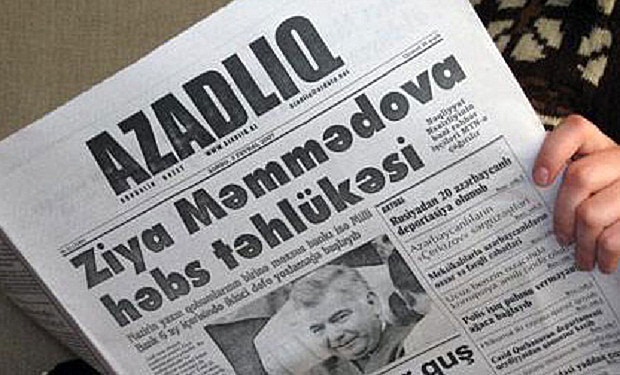
Seymur Hezi, a reporter working for Azadliq, Azerbaijan’s last independent newspaper, was sentenced to a two month pretrial detention on Monday, charged with disorderly conduct. This morning, journalist Khadija Ismayilova was detained at the Baku airport, according to the Institute for Reporters’ Freedom and Safety (IRFS).
Hezi’s arrest is another sign of the continuing clampdown by Azerbaijan’s authoritarian government on civil society. The journalist was charged with an alleged attack on a person in the street, although his lawyers claim he was trying to protect himself after he had been harassed and attacked.
It is not the first time charges of hooliganism and disorderly conduct have been applied against opposition politicians, civil society activists and journalists in Azerbaijan. In previous years, the same charges were used to imprison critical journalists Sardar Alibeili and Ganimat Zahid as well as bloggers Emin Milli and Adnan Hajizadeh.
“Seymur Hezi’s arrest is a serious blow against our newspaper. He is one of the brightest Azerbaijani analysts and journalists, and a true intellectual,” Rahim Haciyev, acting editor of Azadliq newspaper, told Index.
Haciyev said he is sure Hezi’s arrest is the result of a planned provocation and the journalist is prosecuted for publishing critical articles on the authorities in the newspaper, as well as in his online TV program “Azerbaijani Hour”, which he scripts and hosts.
The journalist’s arrest came only a month after the newspaper he works for, Azadliq, was forced into suspension of publication due to financial pressure from the authorities. Now it exists only in its online version.
The authorities of Azerbaijan continue their clampdown on the civil society of the country. Well-know human rights defenders Rasul Jafarov, Intigam Aliyev, Leyla Yunus and her husband Arif Yunus are still behind bars after they were all sentenced to 3 months of pretrial detention. The office of the Institute for Reporters’ Freedom and Safety (IRFS) was searched and sealed.
This wave of repression is connected to new legislation in place in Azerbaijan that restricts the freedom of association. In fact the new law makes it illegal for unregistered civil society organisations to receive funds for their activities.
This article was posted on 5 Sept 2014 at indexoncensorship.org
4 Sep 2014 | Digital Freedom, Iran, News and features
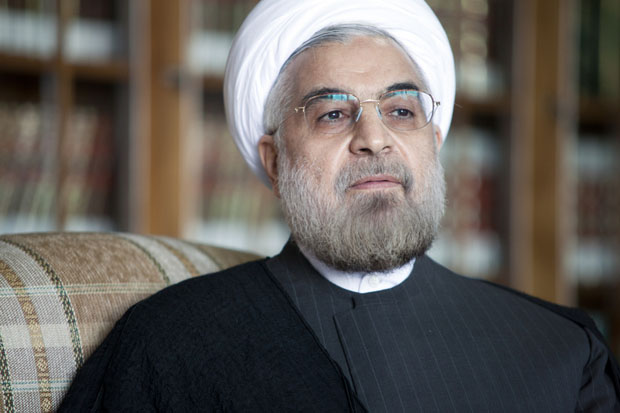
(Image: Meysam Mim/Demotix)
President Hassan Rouhani is fond of rhetorical flourishes that promise Iranians freer access to virtually all forms of information, from satellite television to uncensored books to a less tightly-regulated press. While in all of the aforementioned areas his policies have failed, or failed to exert themselves, there is one domain where the Rouhani government has pushed forward seriously: securing Iranians better and faster internet connections, including mobile internet that would enable them to properly use the smartphones they buy with such enthusiasm.
In remarks to a group of clerics on Monday, Rouhani presented the internet as crucial to the nation’s progress in both science and academic research, areas that Supreme Leader Ali Khamenei has also identified as paramount to Iran’s development. “We cannot cannot close the gates of the world to our younger generation,” Rouhani said.
He warned that if Iran refuses to tolerate the technological needs of a savvy young generation now, “we will have to do it tomorrow. If not, the day after tomorrow.”
Though Rouhani has backtracked on a number of cultural reforms in the face of fierce hardline opposition, he has been steadfast in backing his internet ideals with hard policies. In the past two weeks, the government has granted 3G and 4G licenses to the country’s two main mobile operators, and has in recent months also permitted internet providers to increase bandwidth on home connections.
One reason why the president has been more willing to back the provision of higher speed internet is that so far, it has come at a more reasonable political price. Because service providers still implement government filters, the state censorship regime that prevents Iranians from accessing websites deemed “immoral” — everything from Facebook to many Persian news sites — will remain in place. While faster connections do mean that Iranians can more nimbly use proxy servers to get around the state filters, the speeds are still slow by developed world standards, requiring great patience from those wishing to use the internet to its full capacity. But 3G and mobile internet remain issues highly contested by hardliners made nervous by the challenges of filtering mobile devices.
Grand Ayatollah Nasser Makaram Shirazi last week issued a fatwa declaring high-speed and mobile internet haram, later comparing mobile internet to “muddy water” that requires filtering. Rouhani has sought to bypass these concerns by making the case for the internet’s importance as a research tool for scientific progress. As Rouhani joked in an 30 August press conference, the speeds that the country’s clerics are advocating are slow enough to make someone waiting to download an article fall asleep.
This framing of the issue is a canny approach, for it challenge Khamenei to back up his ardent support for Iranian scientific empowerment with policies that might otherwise make him uncomfortable. This past July at a meeting with university professors, Khamenei praised the work of the country’s “scientific movement”, saying that it “has achieved great objectives and become recognised on the international scene”.
By linking the objectives most dear to Khamenei to his own objective of pulling Iran out of the internet dark age, Rouhani is carving out a political space where his goals are seen to overlap with those of the supreme leader.
When the Committee for Determining Criminal Web Content sought to block access to the popular mobile messaging tool WhatsApp, Rouhani intervened. While this certainly endeared him to young Iranians who used the messaging service widely, Rouhani also risked riling the National Telecommunications Company, which is losing revenue as Iranians turn to cheaper foreign alternatives for messaging.
In the battle over control of the internet, there are multiple institutions across political factions vying for a role, with the competing financial interests of various mobile, 3G and telecoms providers underlaying the fray. But what’s clear is that Rouhani has chosen the internet as one of the rare areas where he will back rhetoric with clear policy.
This article was published on 4 Sept, 2014 at indexoncensorship.org
4 Sep 2014 | News and features, Nigeria, United Kingdom
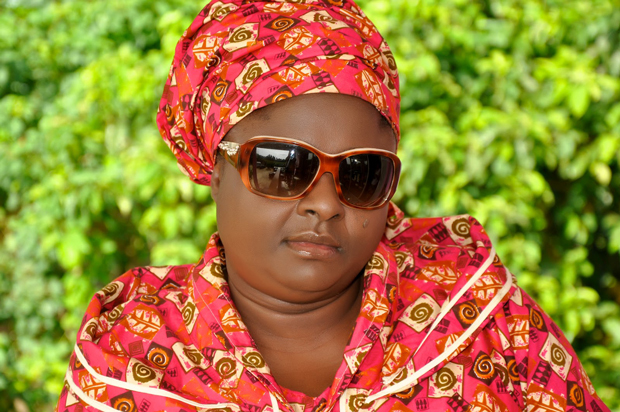
Lady Apostle Helen Ukpabio was banned from travel to the UK in April 2014
Lady Apostle Helen Ukpabio is a pastor, author, film producer, actress, artist, composer and singer and founder of Liberty Foundation Gospel Ministries, based in Calabar, Nigeria. She is also, as one would suspect of someone with such a CV, possessed of admirable chutzpah.
It emerged this week that Ukpabio is threatening to sue the British Humanist Association to the tune of half a billion pounds (to be precise, £500,010,500 in costs and compensation). Ukpabio claims that the BHA, and their companions at the Witchcraft and Human Rights Information Network, have defamed her. Her specific claim against the BHA is that an article on its website claimed she believed that noisy babies may be possessed by Satan.
The article, which appeared in July 2009, says that Ukpabio wrote in her book, Unveiling The Mysteries Of Witchcraft, that “A child under two years of age that cries at night and deteriorates in health is an agent of Satan”.
In this, the article is mistaken. Ukpabio’s book does not seem to contain this sentence. Rather, under the heading “How To Recognise A Witch”, Ukpabio writes: “Under the age of two, the child screams at night, cries, is always feverish suddenly deteriorates in health, puts up an attitude of fear, and may not feed very well.”
This is not, you will see, the same. But a misquote is one thing; a libel is quite another.
The placing of this misquote at the centre of Ukpabio’s claim is based on the premise that it is fundamentally worse to accuse a child of being possessed by a devil than it is to accuse a child of being a witch, or possessed by a witch, or a vampire (as mentioned in the initial legal threat).
This is the stuff of a particularly heated thread on a Dungeons and Dragons board. It is not an argument that has a place in a chamber at the Royal Courts of Justice, in spite of that building’s Gormenghastish architecture.
That’s not the only reason the case shouldn’t come to court: the article in question was published over five years ago, apparently without ill effect on the lady Ukpabio. She admits to not having seen the article on the BHA website until earlier this year.
Her complaint, in reality, is not about the 2009 article, or the difference between satanic possession and witchcraft. Ukpabio’s underlying complaint is about a campaign to have her banned from the country in April 2014. It is the coverage of her controversial trip to Britain in April that her lawyer claims caused her to suffer reputational injury.
So why, rather than attack the numerous news outlets who reported negatively on her UK visit, during which a London venue cancelled her booking after being alerted to her witchfinding and exorcising activities, is she instead pursuing threatening humanists?
At the World Humanist Congress in Oxford last month, Nigerian delegates such as the brilliant, brave Leo Igwe, spoke passionately about preachers and witchfinders like the Lady Apostle. While in Britain “militant atheist” has become a term of abuse associated with the gauche tweets of Professor Richard Dawkins, in Nigeria, a forthright approach to religion and the abuses carried out in its name is a necessity. Humanists there are not fighting semantic battles; rather, they are engaged in a real struggle to save children and vulnerable people from accusations of witchcraft and possession: accusations that could lead to them being thrown out of their homes, beaten and even killed.
What scant support Nigerian activists receive comes from the international atheist and humanist community. While I would not cast doubt on western humanists’ solidarity with their Nigerian comrades, a costly court case would make anyone think twice before getting involved in faraway struggles again.
To grant Ukpabio’s claim any credence would be to severely inhibit the struggle against dangerous superstitions in Nigeria and elsewhere in Africa. To even get involved in an legal argument over whether satanic possession is worse than witchcraft would grant a glimmer of legitimacy to the abuse of children in the name of God. That is reason enough for the English High Court to dismiss the Lady Apostle’s ludicrous lawsuit.
This article was posted on Sept 4, 2014 at indexoncensorship.org
4 Sep 2014 | ArtFreedomWales, Events, News and features
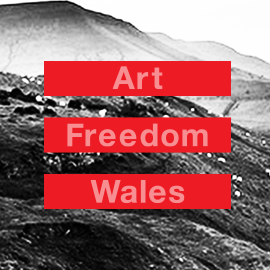 Is the space for artistic freedom of expression expanding or shrinking?
Is the space for artistic freedom of expression expanding or shrinking?
ArtFreedomWales is part of Index on Censorship’s programme taking stock of the support for artistic expression across the arts sector in the UK and ArtFreedomWales focuses on the specific issues impacting on Welsh arts and culture.
Join artists from all fields and working at all levels in Wales for an afternoon of participatory debate and open, honest discussion.
Confirmed speakers include:
- Elen ap Roberts (Artistic Director, Pontio Centre of Arts and Innovation)
- Dai Smith (Chair of Arts Council Wales)
- Baroness Kay Andrews (Author of Tackling Poverty through Culture)
- Lleucu Siencyn (CEO Literature Wales)
- David Anderson (Director General of Museums Wales)
- John McGrath (Artistic Director, National Theatre Wales)
WHEN: Thursday 27th November, 1pm – 6pm
WHERE: Chapter Arts Centre – Cardiff (Map/directions)
TICKETS: £5 contribution to costs, available from Chapter Arts Centre Box Office.
#ArtFreedomWales
ArtFreedomWales: Google Hangouts With Artists From Across Wales
In the lead up to this event, we’re hosting online discussions with artists from across Wales. The first, asking whether Wales is a centre for artistic free expression featured Tim Price, Lisa Jen, Kathryn Gray and Leah Crossley. Watch it here.
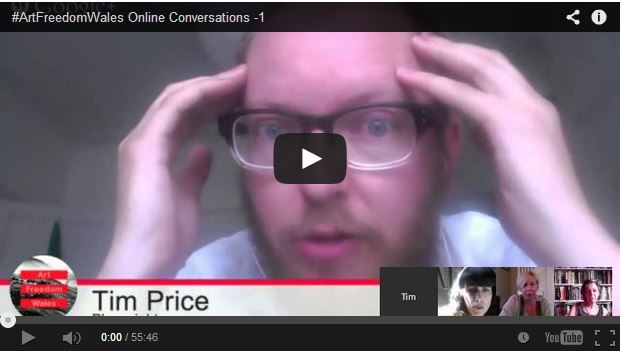
The second, exploring the situation for artists working in Welsh featured Bethan Jones Parry, Arwel Gruffydd, Bethan Marlow, Mari Emlyn and Iwan Williams. Watch it here.
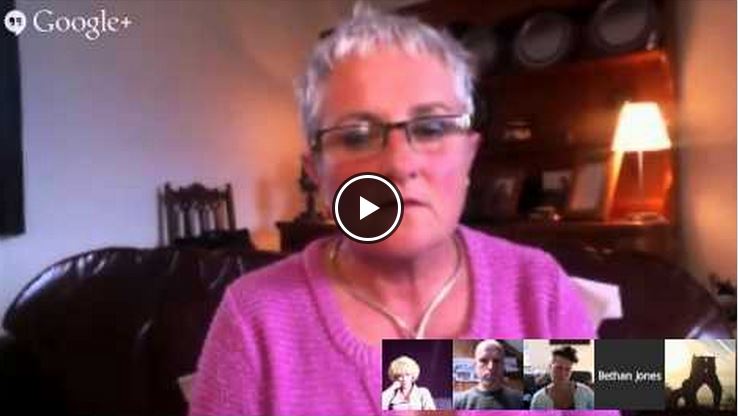
Two further discussions will follow in late September and early October – check back here for details. Collectively, these discussions will inform the agenda for the #ArtFreedomWales symposium.
ArtFreedomWales: Why We Are Doing This.
“Freedom of expression is not self-perpetuating, but needs to be maintained by the constant vigilance of those who care about it.” Michael Scammell – Index on Censorship Magazine 1972
We believe that freedom of artistic expression lies at the heart of artistic practice. Support for artistic freedom allows the artist to push boundaries, to say what is not being said, to imagine the world differently, to act as critic and to speak truth to power. Artistic freedom of expression thrives on risk and experimentation, embracing controversy and diversity of opinion. And there is a vibrant and essential debate triggered by challenging art.
You only have to think of what happens to artists in societies that are not free… But even in countries where freedoms are upheld as a core principle, artistic freedoms are all too easily eroded by social, political and sometimes legal constraints.
ArtFreedom: The UK Programme so far.
In 2013 we held a conference in London ‘Taking the Offensive’ hosted by Jude Kelly at the Southbank Centre to identify and explore the social, political and legal controls that shape our cultural landscape. Nicholas Serota gave an insightful keynote speech and amongst the contributors were lawyer Anthony Julius, Professor Mona Sidiqui, Sir Hugh Orde (President of the Association of Chief Police Officers), Sally Tallant (CEO Liverpool Biennial) and Moira Sinclair (Executive Director of Arts Council England). You can read a report here.
In May 2014, we held a symposium in Belfast exploring these issues in Northern Ireland with playwright Martin Lynch giving an opening provocation to a morning of artist focused debate and discussion.
ArtFreedomWales is funded by Arts Council Wales as part of our UK wide programme looking at freedom of expression in the arts.
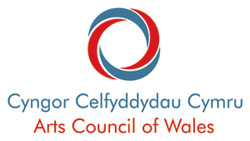
Arts Council of Wales supports this programme




 Is the space for artistic freedom of expression expanding or shrinking?
Is the space for artistic freedom of expression expanding or shrinking?

